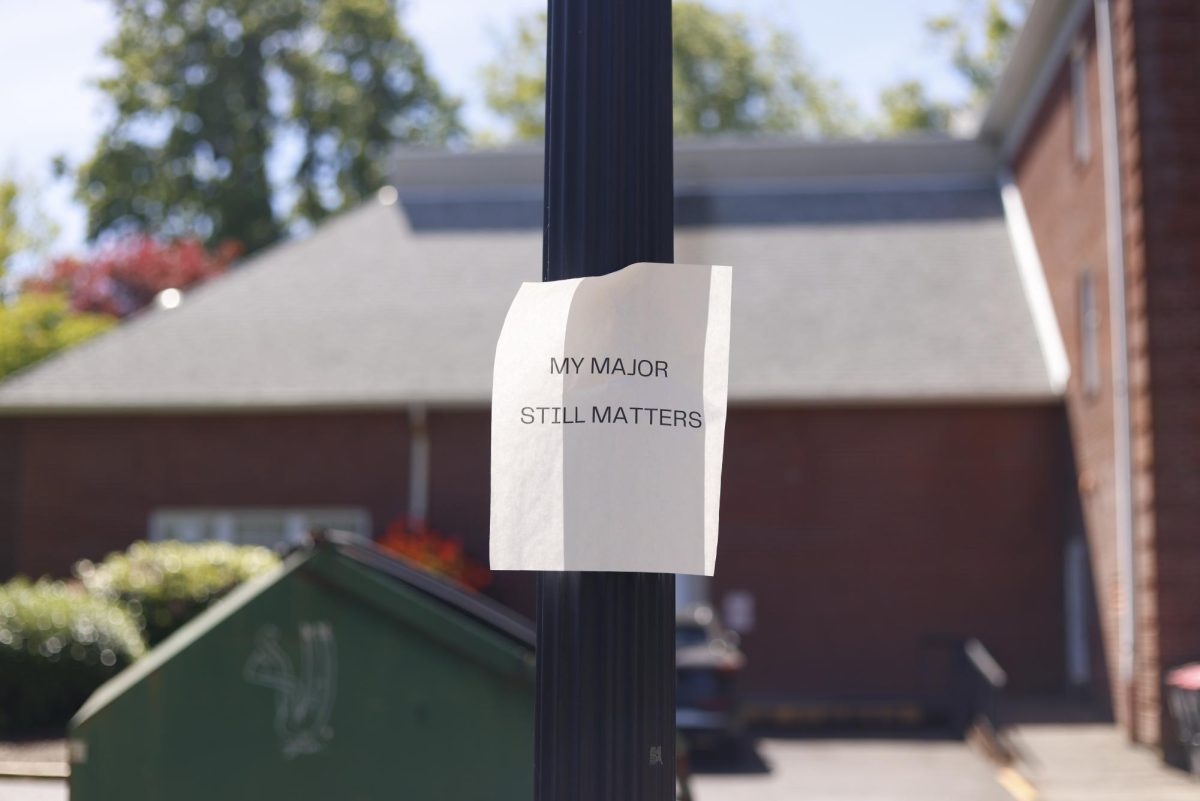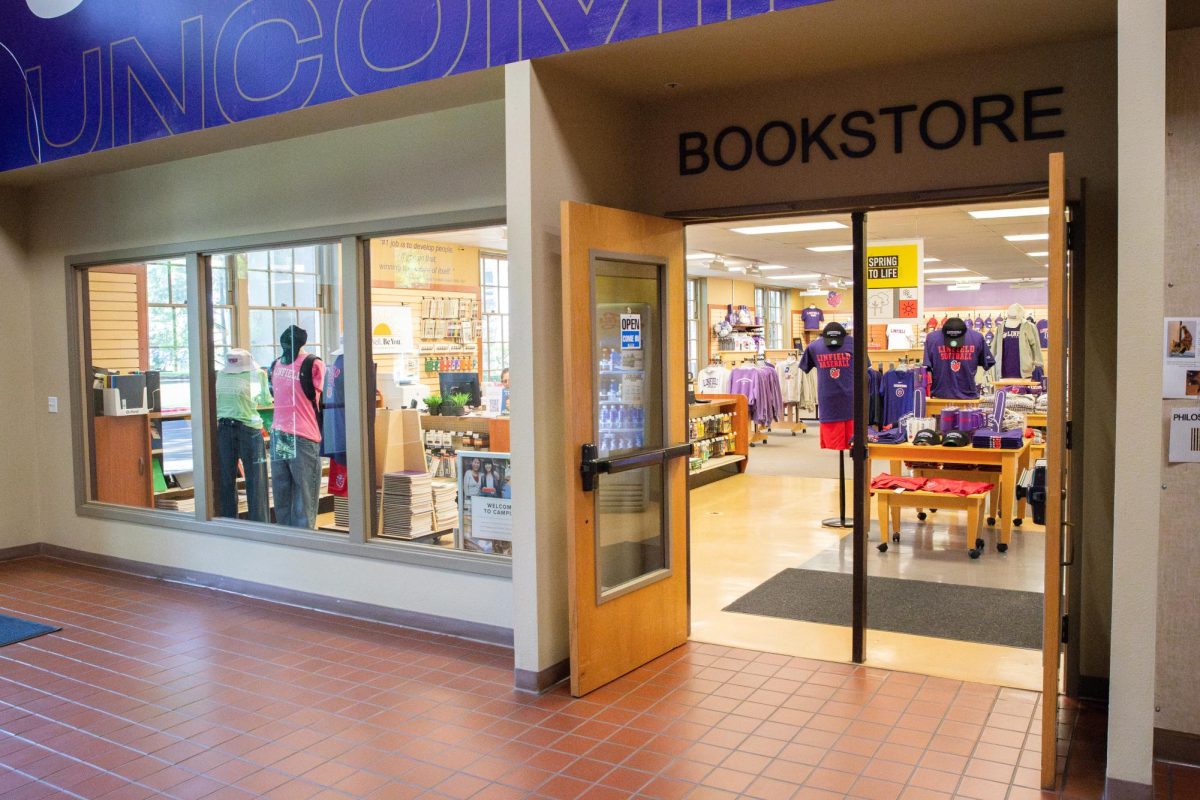The Student Health, Wellness and Counseling Center hosted a lecture for Sexual Assault Awareness Month about how important it is for men to help prevent sexual assault.
Guest speakers Jon Davies, Ph.D., the director of the McKenzie River Men’s Center and Max Wolfard, cofounder of the “Be That Guy” campaign at the university of Oregon spoke to a standing-room-only crowd in TJ Day Hall about how society needs to stop treating sexual assault as an exclusively female problem.
“We shouldn’t be thinking about what society needs from men now, but instead men should be asking themselves ‘what kind of man do I want to be?’ and ‘what keeps me from being that man today?’” Davies said.
Both Davies and Wolfard run organizations where men gather to talk about the societal pressures placed on them to be masculine and dominant, and how these stereotypically manly traits can lead to other issues, like the propensity toward sexual assault.
“I think the main message of the event was that men can be engaged in the issue without fear of being bashed or blamed,” said Coordinator of Student Health and Wellness Programming Adria Godon-Bynum. “The majority of men are not perpetrators of sexual violence and we should be doing everything in our power to engage these men in violence prevention. I think the message was that good men need to stand up and participate in violence prevention and that when they do we will welcome them to the table.”
A slideshow accompanying the lecture showed statistics that about 70 percent of college men demonstrate appropriate behavior, while 20 percent can be manipulative of a partner and 10 percent may at some point sexually assault or rape someone.
“Men as a group are seen as powerful,” Davies said. “But individually men do not feel powerful, and our culture links the ideas of power and importance to sexuality. Men are, therefore, more likely to be sexual aggressors and are less likely to seek help for fear of being shamed.”
Davies compared the body image and beauty standard placed on women to the sexual standards placed on men, both of which are impossible and unhealthy to attain. Wolfard spoke about the program he created the University of Oregon to help engage men in the Greek Life system in becoming allies for sexual assault victims and teaching them to be active bystanders when they see something bad happening.
“Be That Guy wants to redefine masculinity so it’s not about physical strength,” Wolfard said. “We want to show that strength is about having the prudence and the wisdom not to raise your voice, but instead raise your persuasion and raise your argument. In this way we can eliminate the stigma against asking for help when it is needed.”
Linfield has the C.A.T.S. program, which provides similar information to incoming students in the fall of freshman year.
“The C.A.T.S. program provides sexual assault prevention education to incoming students, and gives information about sexual misconduct policy, active bystander intervention techniques, ways to support survivors of sexual misconduct and how to report sexual misconduct,” Godon-Bynum said. “But I am always looking for ways to innovate it. We have always struggled to engage men in our program and I usually have about two to three times more women in my courses than men.” Godon-Bynum hopes that lectures like this will help stimulate conversation at Linfield about how men can be involved with sexual assault prevention and break down the gender stereotypes in our society that lead to sexual violence.
Olivia Marovich
News editor
Olivia Marovich can be reached at
[email protected].






